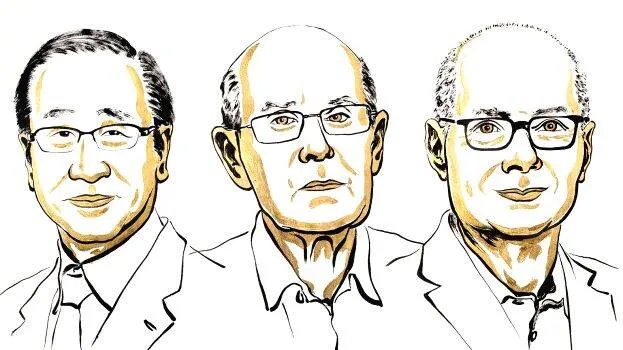

STOCKHOLM: The 2025 Nobel Prize in Chemistry has been awarded to three scientists- Susumu Kitagawa (Japan), Richard Robson (Australia), and Omar M. Yaghi (United States)- for their pioneering work in developing metal-organic frameworks (MOFs).
The trio was honoured for creating molecular structures with large internal spaces, allowing gases and other chemicals to pass through. These porous materials, known as MOFs, have a wide range of potential uses, including harvesting water from desert air, capturing carbon dioxide, storing toxic gases, and catalyzing chemical reactions.
“The 2025 #NobelPrize in Chemistry has been awarded to Susumu Kitagawa, Richard Robson, and Omar M. Yaghi ‘for the development of metal-organic frameworks’,” announced the Royal Swedish Academy of Sciences.
The Nobel Committee explained that the laureates’ work introduced a new type of molecular architecture. In their constructions, metal ions function as cornerstones that are linked by long organic (carbon-based) molecules. Together, the metal ions and molecules are organised to form crystals that contain large cavities. These porous materials are called metal-organic frameworks (MOF). By varying the building blocks used in the MOFs, chemists can design them to capture and store specific substances. MOFs can also drive chemical reactions or conduct electricity.
“Metal-organic frameworks have enormous potential, bringing previously unforeseen opportunities for custom-made materials with new functions,” said Heiner Linke, Chair of the Nobel Committee for Chemistry.
Since their discovery, researchers worldwide have created tens of thousands of MOFs, many of which could help address major global challenges- such as removing PFAS from water, degrading pharmaceutical residues in the environment, trapping carbon dioxide, or extracting moisture from dry air.
The 11 million Swedish kronor prize will be divided equally among the three Nobel laureates.